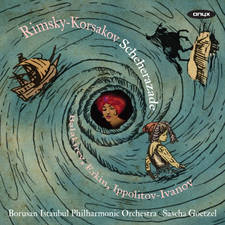O Magnum Mysterium: what are the lyrics, and which composers have set it?
28 September 2022, 10:45 | Updated: 18 September 2023, 16:34

O Magnum Mysterium | Genesis Sixteen | A Classic FM Christmas
Composers as varied as Palestrina, Poulenc and Maxwell Davies have set it to music, but perhaps the best known is the haunting setting for unaccompanied choir by Morten Lauridsen, the American composer of Danish ancestry.
O Magnum Mysterium is a text from the Holy Matins of Christmas describing the wonderment of the animals as they gaze on Christ: “O great mystery and wonderful sacrament, that animals should see the newborn Lord, lying in a manger!”
Famous settings of the text today include those of Spanish composer Tomás Luis de Victoria (1548-1611), French composer Francis Poulenc (1899-1963) and English, Shakespearean age composer William Byrd (1540-1623). But perhaps the best known today is the haunting motet for a cappella choir by the American composer, Morten Lauridsen (1943-).
What’s the story of Morten Lauridsen’s ‘O Magnum Mysterium’?
The story begins in 1994 when top Californian lawyer Marshall Rutter commissioned a piece in honour of his wife, Terry Knowles; she in turn was the executive director of the Los Angeles Master Chorale. The choir had signed Morten Lauridsen as its composer-in-residence – this was his first commission.
Seeking inspiration, Lauridsen had taken to visiting local art galleries and, at the Norton Simon Museum in Pasadena, he came across a painting that stunned him with what he described as its “unadorned, understated beauty” and “quiet radiance”. It was called Still Life With Lemons, Oranges And A Rose and was painted in 1633 by Spanish Baroque artist Francisco de Zurbarán. In its serene tranquility, Lauridsen found exactly what he was striving to translate into music.
Read more: What are the lyrics to ‘Amazing Grace’, the traditional hymn?

Back in 1975, the then 32-year-old Lauridsen had bought an abandoned shop on the waterfront of a remote island off Washington State where he spent his summers contemplating and composing.
“Many people have said that the serenity there, the closeness with nature and the abiding calmness have affected my music, and I think that’s true,” he says. It was here and, in his words, “on a 50-dollar piano” that he wrote O Magnum Mysterium, a work he describes as “a quiet song of profound inner joy”.
There were, however, many distractions. “While I was working on the piece, many visitors came by my cabin,” said Lauridsen. “I literally had to put a sign on the gate saying: ‘Composing – come back at 4.30’. I’d look out the window and see a little crowd of people looking at their watch, and then at 4.30: bang, bang, bang on the door and in they would come!”
O Magnum Mysterium was first performed on December 18, 1994 and was an instant success – its luminous, gently shifting harmonies perfectly expressing a timeless sense of serenity and wonder. Since then it has been recorded scores of times and performed thousands more, making it one of the most beloved pieces of Christmas music ever written.
Read more: The 30 greatest Christmas carols of all time

Spine-tingling 'O magnum mysterium' – Victoria | Fieri Consort | Classic FM
What are the lyrics to ‘O Magnum Mysterium’?
O magnum mysterium
Et admirabile sacramentum
Ut animalia viderent Dominum natum
Jacentem in praesepio!
Beata Virgo, cujus viscera
Meruerunt portare
Dominum Christum
Alleluia
What do the lyrics mean in English?
O great mystery,
and wonderful sacrament,
that animals should see the newborn Lord,
lying in a manger!
Blessed is the virgin whose womb
was worthy to bear
the Lord, Jesus Christ.
Alleluia!










































